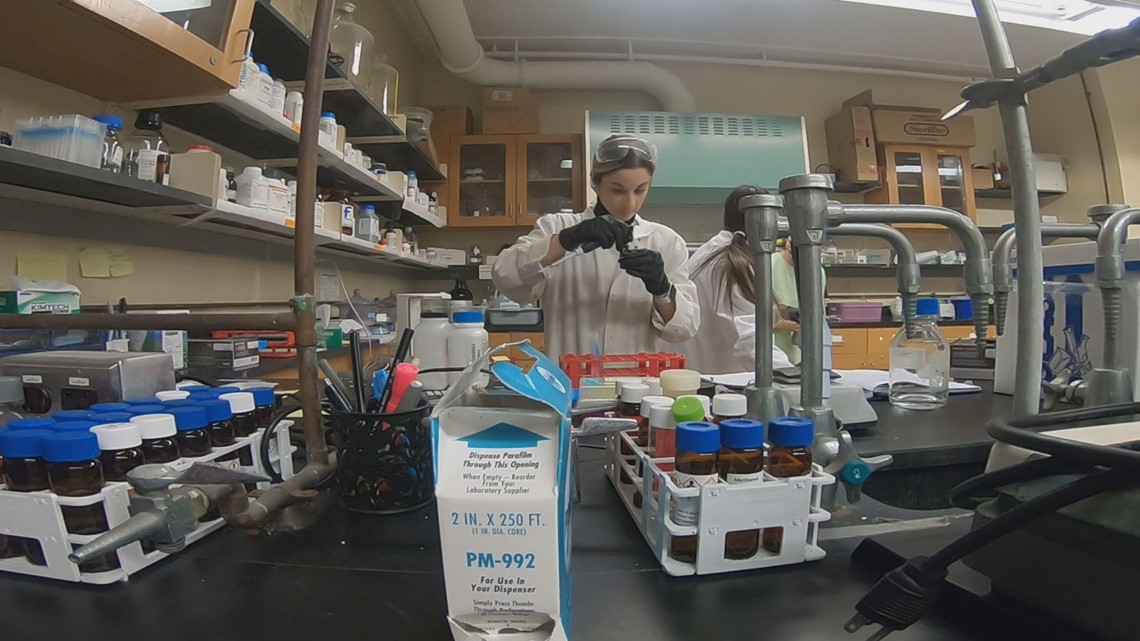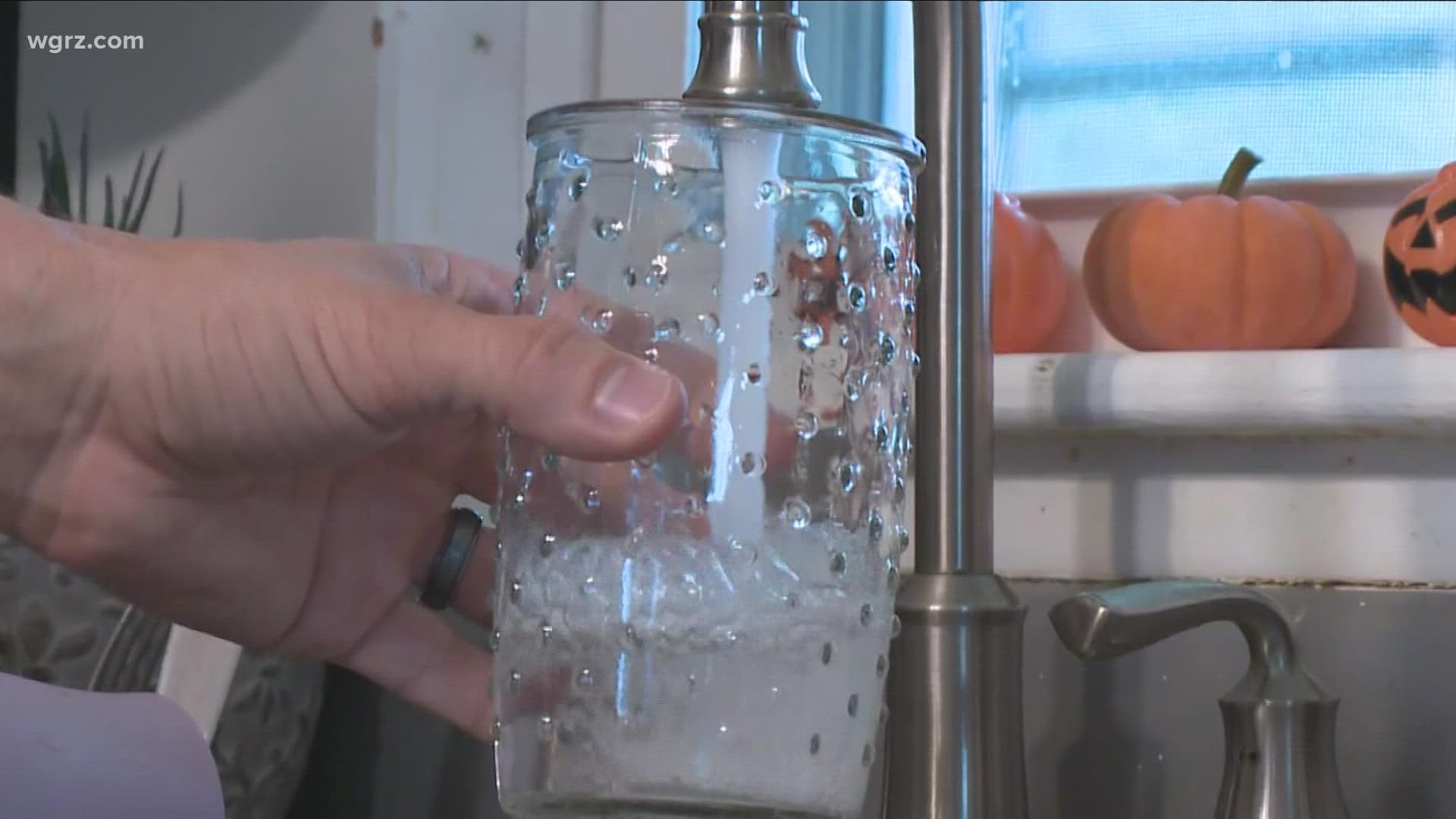BUFFALO, N.Y. — PFAS is a very widely used group of chemicals that were invented in the thirties. Originally used in nonstick and waterproof coatings. Its use increased in the sixties as a fire retardant. Now they're used in everything from microwave popcorn bags to pizza boxes, and they're found in our water too. What was once the innovation is now a scourge, as PFAS are literally found everywhere. Scott Simpson is an Associate Professor and Department Chair of the Chemistry Department of St. Bonaventure University in Olean, NY.
"There's not a living creature on the planet, including us, that doesn't have these compounds in us, in our blood. There was a study that recently came out that was looking at Pine needles and found them in Pine trees around the United States. "


PFAS has a remarkable persistence in the environment. "These chemicals are made of Carbon- Florine bond, which is the strongest bond you could ever make." Explains UB professor Of Chemistry Diana Aga. "So that doesn't get broken by microorganisms."
Ekin Atilla is an Associate Professor in the Chemistry Department at UB.
"That makes them really unique in terms of their interaction with the ecosystem, with different biological systems."


Their widespread use makes them damaging on a large scale, and they work their way through the entire system, from small to large. The effects on all living beings can be devastating.
"We do know that they cause cancers, heightened forms of ADHD, and other problems in children." Simpson explains." Children are born with deformities when they're exposed to large amounts of these, we do know that there are health risks associated with them, we don't know how these health risks come about." Adds also said, "Animals are affected the same way as PFAS affect people."


The University at Buffalo is currently in collaboration with other schools to solve this problem. Aga says they're looking for ways to safely break down the toxins. "There's chemical degradation, biological degradation, and there's physical degradation which is the burning of the PFAS."
Atilla believes public awareness can go a long way to help as well.
"Being aware of products that are more prone to having PFAS and trying to avoid them as much as we can is something that we can affect the way we get exposed to them."
PFAS is just another reminder that progress is never without consequences. " There's always a compromise, right ?" Aga says." We make our life convenient, but convenience comes with a price."
To learn more about the project, click here.

